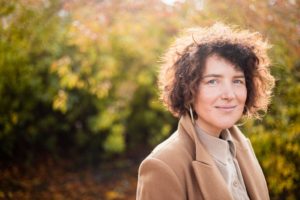POETRY COURSE
When talking about poetry, writer Virginia Woolf said that the purpose of a poet is to describe honestly and accurately a world that, as a possible thing, never existed for any person. Each poem, sonnet or haiku is a separate universe where all laws obey the imagination of the poet. However, how to open the gates to those unknown worlds with the help of words, rhyme, rhythm, language tools alone?
In this course, Assoc. Dr. Gabrielė Labanauskaitė will help tame poetry to those who are afraid of it, and will introduce those who are already skilled to the techniques and intricacies of this literary genre.
Lenght: 21 academic hours

IN THIS COURSE:
- you will open the door of poetry, which will give space for creativity to spread and help you in difficult moments of life;
- you will get to know the diversity of poetry genres and the uniqueness of each of them;
- you will play in rhyme and rhythm;
- you will get to know the fastidious Miss Metaphor and other decorations of speech better;
- you will test the methods of creating poetry and develop your writing skills;
- you will create, read and generally increase your understanding of what poetry is;
- at the end of the course you will receive personal feedback about your creation;
- if you miss the session, you will be able to view the video material;
- you will expand the circle of creative like-minded people.
UNIQUENESS:
What makes this creative writing course different from other similar courses?
- this is the only poetry writing course in Lithuania so far;
- the course program is special in its completeness and in-depth study of the material, enriched with many practical exercises and advice;
- you will create together in a small group;
- the course is playfully led by the poet and playwright Gabrielė Labanauskaitė, and feedback will be provided by the poet Aušra Kaziliūnaitė, who has published six books of poetry.
FEEDBACK:
I would describe this first poetry course as very comprehensive. It was very interesting and meaningful to get acquainted with the structures, formulas, and possibilities of creating poetry, while at the same time allowing to feel the absence of those boundaries. Inventive tasks, as always, awakened creativity, encouraged independent work, and perfectly filled our time with poetry. And also the feedback that Aušra Kaziliūnaitė gave us in the last lecture was extremely interesting and rich in all senses. – Sandra Sparnaitiene
During this course, I received structured, clearly, and interestingly conveyed knowledge about poetry, different styles and genres. Gabriele also always provides tools that help you create and enable you to work independently. I am so grateful for all the fellowship, inspiration, support, and encouragement to move along my path. During these trainings, it was a great joy to hear the feedback of writer, teacher, poet Aušra Kaziliūnaitė about my work and that of other training participants. Such support helps a lot and encourages me to feel more confident in creating poetry. – Justina Butkutė
—
❓ You can know the dates of the recent courses by e-mail → [email protected] or social media ➡ IŠ TYLOS
 Photography: Glenn Carstens Peters
Photography: Glenn Carstens Peters